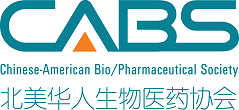DaShu Seminar: Genome-Scale Signatures of Gene Interaction from Compound Screens Predict Clinical Efficacy of Targeted Cancer Therapies
Date: March 30, 2018 @ 9:00 am – @ 9:00 am
Location: Longwood Center | 360 Longwood Ave., Boston, MA, USA
Genome-Scale Signatures of Gene Interaction from Compound Screens Predict Clinical Efficacy of Targeted Cancer Therapies
Time: 03/30/2018 Friday, 12:00 PM (EST) to 1:00 PM (EST) (9:00 AM - 10:00 AM PDT)
In-person seminar location: Longwood Center | 360 Longwood Ave., Boston, MA, USA (in-person attendance is welcome!)
Webinar link will be sent 24 hours before the event.
RSVP by 11:59 AM PDT, March 28, 2018 using the link below:
|
In-person session is located here: Longwood Center | 360 Longwood Avenue, Boston, MA, United States If you are located in Boston area, please come to our in-person session if convenient. The time is 03/30/2018 Friday from 12:00 PM (EST) to 1:00 PM (EST). The paper for this talk: Peng Jiang, Winston Lee, Xujuan Li, Carl Johnson, Jun S. Liu, Myles Brown, Jon Christopher Aster, and Xiaole Shirley Liu. In Press. “Genome-scale signatures of gene interaction from compound screens predict clinical efficacy of targeted cancer therapies.” Cell Systems. Time: 9:00 AM - 10:00 AM PDT (12:00 PM - 1:00 PM EST), Friday, March 30, 2018 Zoom.us link will be sent 24 hours before the event. Please RSVP, the registration will be closed on 11:59 AM, March 28, 2018. Abstract Identifying reliable drug response biomarkers is a significant challenge in cancer research. We present CARE, a computational method focused on targeted therapies, to infer transcriptomic signatures of drug efficacy from cell line compound sc |
The paper for this talk: Peng Jiang, Winston Lee, Xujuan Li, Carl Johnson, Jun S. Liu, Myles Brown, Jon Christopher Aster, and Xiaole Shirley Liu. In Press. “Genome-scale signatures of gene interaction from compound screens predict clinical efficacy of targeted cancer therapies.” Cell Systems .
Abstract
Identifying reliable drug response biomarkers is a significant challenge in cancer research. We present CARE, a computational method focused on targeted therapies, to infer transcriptomic signatures of drug efficacy from cell line compound screens. CARE outputs genome-wide scores to measure how the drug target gene interacts with other genes to affect drug efficacy in the compound screens. When evaluated using transcriptome data from clinical studies, CARE can predict the therapy outcome better than signatures from other methods. Moreover, the CARE signatures for the BRAF inhibitor are associated with an anti-PD1 clinical response, suggesting a common efficacy signature between targeted therapies and immunotherapies. When searching for genes in lapatinib resistance, CARE identified PRKD3 as the top candidate. PRKD3 inhibition, by both siRNA and compounds, significantly sensitized breast cancer cells to lapatinib. Thus, CARE should enable large-scale inference of response biomarkers and drug combinations for targeted therapies using compound screen data.
--
.

